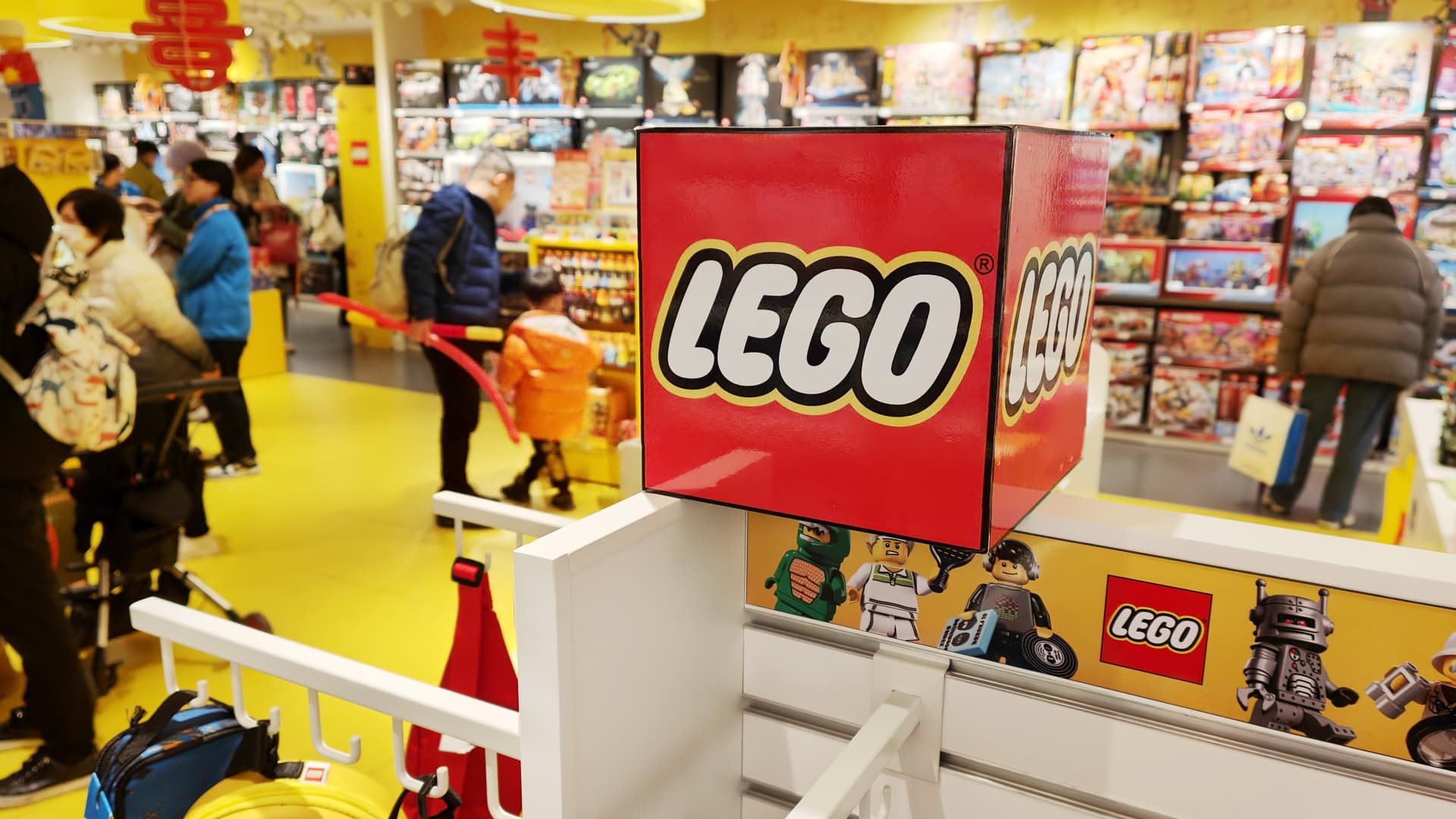The Lego company grew sales 2% last year, even as the global toy industry saw sales slip 7%, according to data from Circana.
The pandemic-era gains that fueled exponential toy industry sales growth waned in 2023 as consumers cut discretionary spending amid rising inflationary costs and increased credit card debt. Meanwhile Denmark-based Lego posted resilient sales, with revenue reaching 65.9 billion Danish krone, or about $9.65 billion, it said Tuesday.
“Being able to again outgrow the market by almost 10 percentage points, like we’ve done the last couple of years, I think it’s really nice to see that we could do that in good years, and we can also do it in bad years,” Lego CEO Niels Christiansen told CNBC.
Lego was among the toy companies that saw massive gains during the Covid-19 pandemic and continues to outperform the industry and snap up market share. The company saw sales jump 27% in 2021 and 17% in 2022.
The toymaker’s top-performing brands last year included Lego Icons, Lego Technic, Lego City, Lego Harry Potter and Lego Star Wars. These kits range in size and difficulty, with the company saying the themes make it fun for children to learn building skills while providing a creative outlet for adults.
In 2023, the company had 780 products, around 50% of which were new items. That’s on par with previous years and is part of the company’s strategy for having fresh and relevant sets for all consumers.
Of course, the company has not been immune to macroeconomic pressures, particularly as shoppers tighten their purse strings. Christiansen said Lego is selling the same volume of products, but the company has noticed that customers “traded down” in 2023 and opted for lower-priced sets.
Net profit in 2023 reached 13.1 billion Danish krone, or about $1.92 billion, down almost 5% from 2022.
In particular, the key Chinese market saw revenue declines.
“Chinese consumers are really holding back on spending,” Christiansen said.
Lego has been growing its footprint in China over the past few years, opening hundreds of retail locations. While Lego first entered the country in 1993, it was only in the last decade that the brick maker began a massive expansion in the region.
Of the 147 new Lego stores opened last year, 81 of them were in China. While Christiansen says that number will fall to around 40 new openings in 2024, brick-and-mortar remains a key focus for the brand as it moves into smaller cities in China.
Lego has also been expanding its digital presence, partnering with Epic Games to launch Lego Fortnite, an open world survival video game.
“We’re basically competing for children’s time and their attention and being relevant with them,” Christiansen said.
Lego’s team of digital experts grew by 27% in 2023, the company said, as it pushed to improve online experiences across the board from shopping to television and film content. The goal is always to tie these digital touchpoints back to physical play.
“At the end of the day, they may spend a little bit on Lego Fortnite or wherever, but I hope when it gets to Christmas that we are on their wish list,” Christiansen said.
